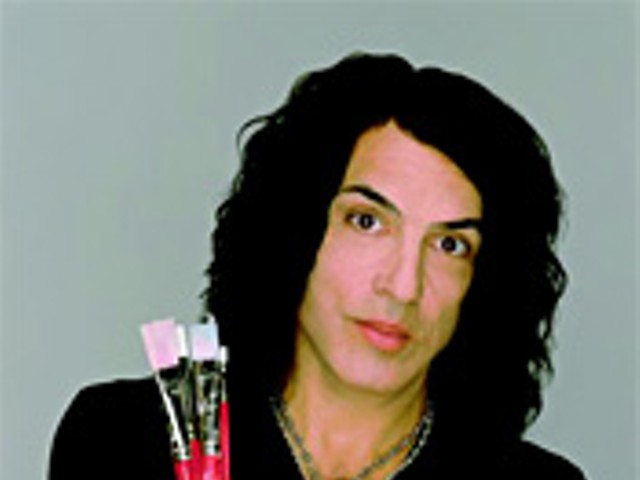No.
Main writers and twin brothers, Larry and Terry Love, have concocted a meandering story buttressed by too-long musical numbers that try to weave together Greek mythology, astrology and inter-family conflict to explain the hermetic relationship shared by twins. It's an ambitious goal, and one that they occasionally achieve. But for most of the evening it's like listening to twins speaking that mysterious shared language they all seem to create for their own private conversations: Interesting as a phenomenon, but eventually boring and frustrating for all those not privy to the dialogue.
The evening starts well. The ArtLoft stage is bare, save for a pair of silver-painted tire swings suspended at the front and back corners. The word "Balance" is projected on a screen overhead, and then two offstage voices (those of Larry and Terry, we soon discover) start speaking, one voice shadowing the other through the same lines. The Narrator (Monica Robinson) emerges to brief us on the myth of Leda and the Swan, another in Zeus' long string of seductions. This particular dalliance with a mortal leads to the birth of two sons, Castor and Pollux. Robinson, wreathed in a diaphanous white number, has a big voice with a delicious rasp, and she sings her lines more than speaks them. Then the Love brothers emerge, garbed in matching white outfits, to take to the swings in silence.
The overhead screen displays a field of stars, the lights come up, and the brothers begin bickering about the B-52's hit single "Love Shack" and gossiping about the peccadilloes of the other Zodiac signs. It seems the boys are Castor and Pollux, and they jointly comprise Gemini. They're in the heavens, waiting for another pair to be born who will take their place in the celestial expanse so they can achieve immortality. The scene is a touch forced, but there's also something audacious in the setup that shows promise.
That promise is largely forgotten as Ditto devolves from a bold stance of avant ideas and presentations into a lackluster musical of common origin and grandiose ideas. Zeus (Jim Kimker), who wears a white top hat to go with his white gloves, arrives to seduce another mortal woman (offstage, sadly) in short order: the aptly-named Mother (Mo Monahan), who gives birth to Larry and Terry Love on Earth. Kimker portrays the divine ladies' deity with all the power and charm of a somnambulist; most of the time he stands in the background, clenching his fists or turning away with mechanical regularity. Monahan has a better time of it with Mother, providing a much more naturalistic performance.
Now that Larry and Terry Love exist on Earth, and Castor and Pollux exist in Heaven, the story very, very slowly grinds along. A car crash kills Larry, and Terry and Mother are left on Earth. Terry can still see his brother, who lurks down by the pond, but no one else can. It took 28 words to explain that, but almost 40 minutes to watch it happen. There are songs to break up the passage of time, most of them too long by half. The dialogue around these songs is a welter of repetitive phrasing and awkward exposition. Larry and Terry have the bulk of these lines, and they declaim them with a forced enthusiasm. They both seemed to be working too hard to sell the story, and the result is a performance that feels contrived.
The exception to this is their shared song that reveals how twins tell one another apart. (No song titles are given in the program, but one would assume that the refrain "Compare Us" would work as a title.) Here at last, the onstage Love brothers exhibit the close relationship that the play around them is supposed to illuminate. They exchange barbs about one another's physical shortcomings, mock each other's abilities and genuinely smile for the first time all evening.
Ditto eventually limps to a close without recapturing its initial impetus; it crashes in a heap during a wretched song-and-dance solo by Kimker, this time portraying Thanatos. Kimker has a phenomenal high kick, but his blank stare and otherwise wooden movements turn a moment that's supposed to be fraught with danger into unintentional comedy.





